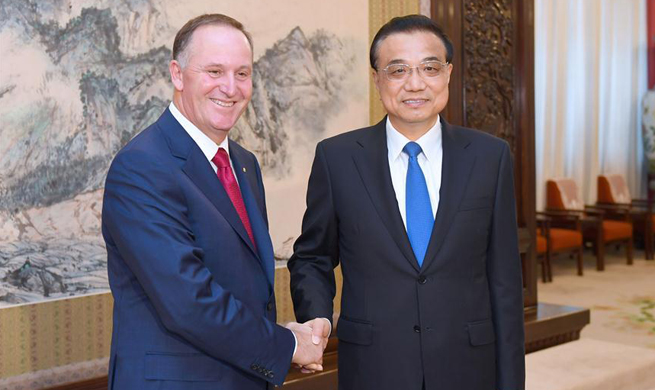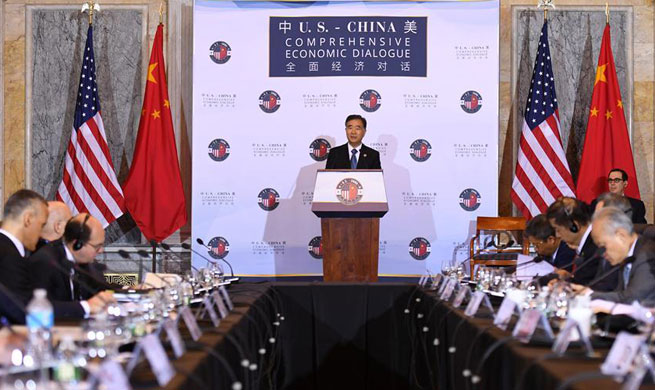BRUSSELS, July 20 (Xinhua) -- The European Union (EU) and Britain failed to bridge their differences on key Brexit issues, including financial settlements, jurisdiction of overseas citizens and the Northern Irish border, as the second round of negotiations concluded here on Thursday.
During talks, the 27 EU members put on a united front against a more seemingly divided British cabinet, led by Prime Minister Theresa May, who is currently under fire in her Conservative party and among the wider British public.
In a press conference, British Brexit Secretary David Davis and his EU counterpart Michel Barnier chose their words carefully in gauging their divergences.
When it came to financial settlements, Barnier underlined EU's stand with a tough tone. "We want -- and we are working towards -- an orderly exit of the United Kingdom. And an orderly exit requires the payment of the accounts," said Barnier.
Davis, for his part, sidestepped a direct response to Barnier, and instead emphasized the obligations of both sides.
Hailing the talks as "robust" and "constructive," Davis said the two sides recognized the importance of sorting out the obligations that Britain and EU have to one another.
"Ultimately getting to a solution will require flexibility from both sides," he said.
Addressing the issue of EU citizens' rights in Britain, Barnier said: "We are now moving in a common direction. But there remains a fundamental divergence on how to guarantee these rights, and on several other points, such as the rights of future members of the family or the export of certain social benefits."
"Citizens must be able to find in the withdrawal agreement itself the legal certainty they need in their daily lives. And of course, any reference to European rights implies its control by the Court of Justice of the European Union," he added.
Davis said he was pleased by the progress made thus far, and acknowledged divergences were to be expected.
"We have looked at each other's proposals in depth and identified many concrete areas where we agree as well as areas where there will be further discussion, which will be a priority for the next round as Michel has said," he said.
"We agreed on the need for certainty on the part of citizens both the EU and the UK. We obviously have different views on how we achieve that," said Davis.
A silver lining in the four-day talks was the two sides' "constructive" talks over the Ireland border issue.
Davis said his hope to achieve "a flexible and imaginative solution to address the unique circumstances around the border" was echoed by the EU.
However, that's where the silver lining stops. The EU said it needs to better understand how Britain intends on ensuring the continuation of cooperation between Ireland and Northern Ireland after Brexit which currently is embedded in the common framework of EU law and policies.
It also wants Britain to clarify in the next session how it intends on maintaining the common travel area after leaving the EU.

















